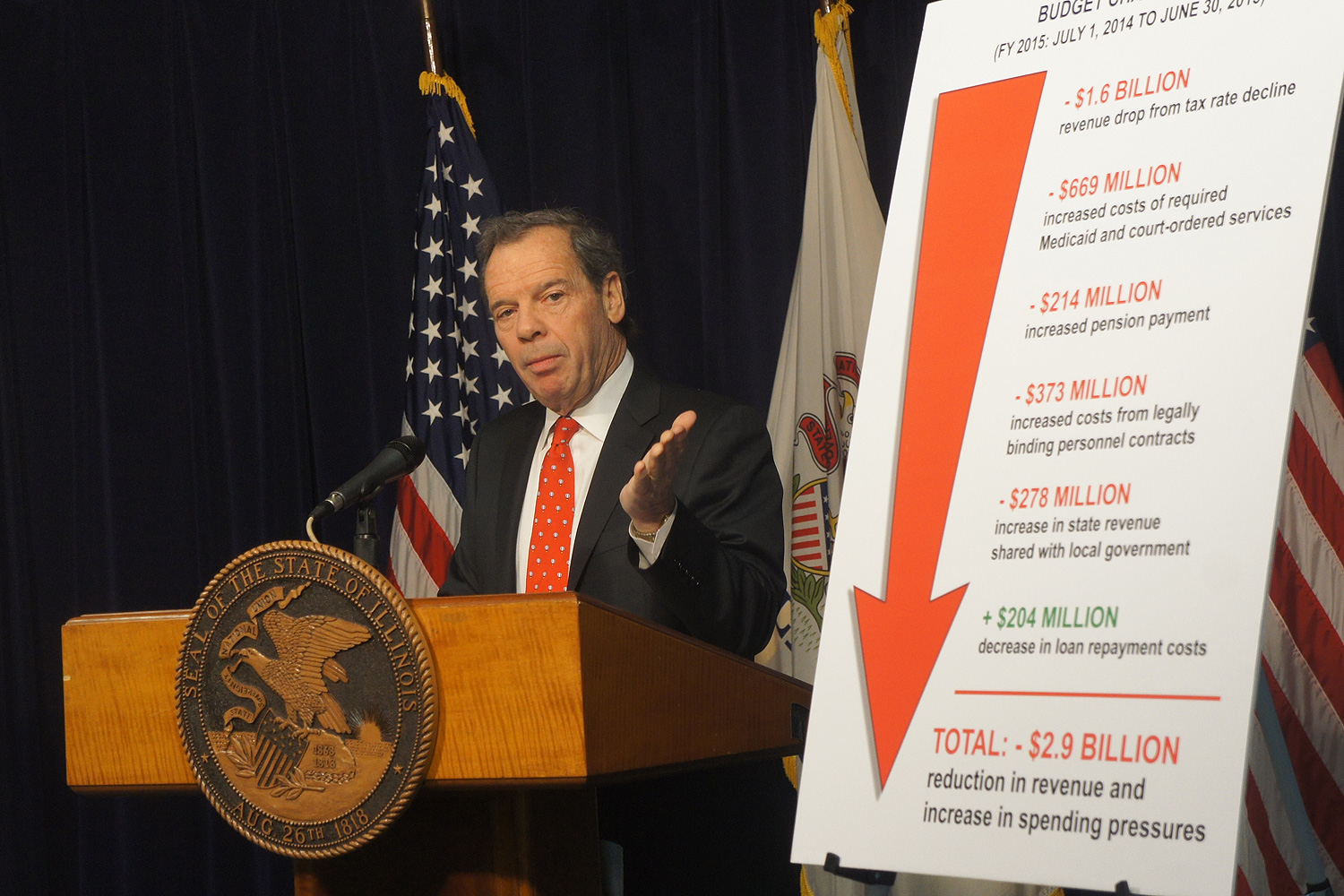On a cold, thundersnowy President's Day at an empty Thompson Center, Senate president John Cullerton broke down the storm looming over the legislature and the Republican hopefuls' primary race: the 2015 budget forecast and the hole that will be blown in it when the temporary income tax increase sunsets at the beginning of next year.
"Illinois faces a nearly 3 billion dollar budget hole for this coming year, and if not corrected this could decimate classroom funding, send college tuition soaring, and erode all the financial progress we've made in the next few years," Cullerton said.
Standing next to a downcast red arrow, Cullerton estimated that the loss of the income tax increase, $1.6 billion for half of the 2015 fiscal year, would be responsible for a bit more than half of the projected shortfall. The rest comes from expected increases in Medicaid expenses—19 cents out of every dollar in the state budget in 2014, two cents more than pensions and tied with education for the biggest chunk of the state budget—alogn with other "court-ordered services," increases in revenue sharing and previously set contract costs, and finally a $214 million increase in pension payments. Any potential savings from the recently passed pension-reform package weren't factored in, because it's expected to be tied up in court.
Cullerton demurred on possible fixes. "I'm not offering a solution," Cullerton said. "We are going to wait for the governor to present his budget." And Pat Quinn wants to push that back until after the March 18 GOP gubernatorial primary.
In the meantime, Cullerton attempted to shift the conversation back to the men running to challenge Quinn, going through the broad strokes of next year's budget to make the case that cuts will be difficult.
"We've already cut state employees," Cullerton said. "We have the lowest ratio of state employees to population in the nation…. Our payroll headcount is down thousands. When someone says 'just eliminate the waste and fraud,' you've got to cross-examine them and ask them what they're really talking about."
The biggest piece of what Cullerton defined as "adjustable spending"—outside of pensions, payroll, debt repayment, court-required human services, Medicaid, and revenue sharing—is education, not including higher education.
"If we look at the remainder of the money that we would have to cut, that's only about $11 billion dollars," Cullerton said. "For us to cut $3 billion out of that, that's an across-the-board 27 percent cut. So if you cut education by $1.5 billion, for Chicago that would be a $300 million cut. The Board of Ed would tell you that would translate into layoffs—additional layoffs of 3,600 teachers."
The Senate president also deferred on the question of whether he'd support an extension of the income tax increase, saying that he was "jumpstarting a discussion," one that's in limbo as Cullerton waits on Quinn and the GOP candidates—and the GOP candidates wait on Quinn and each other—to blink.



